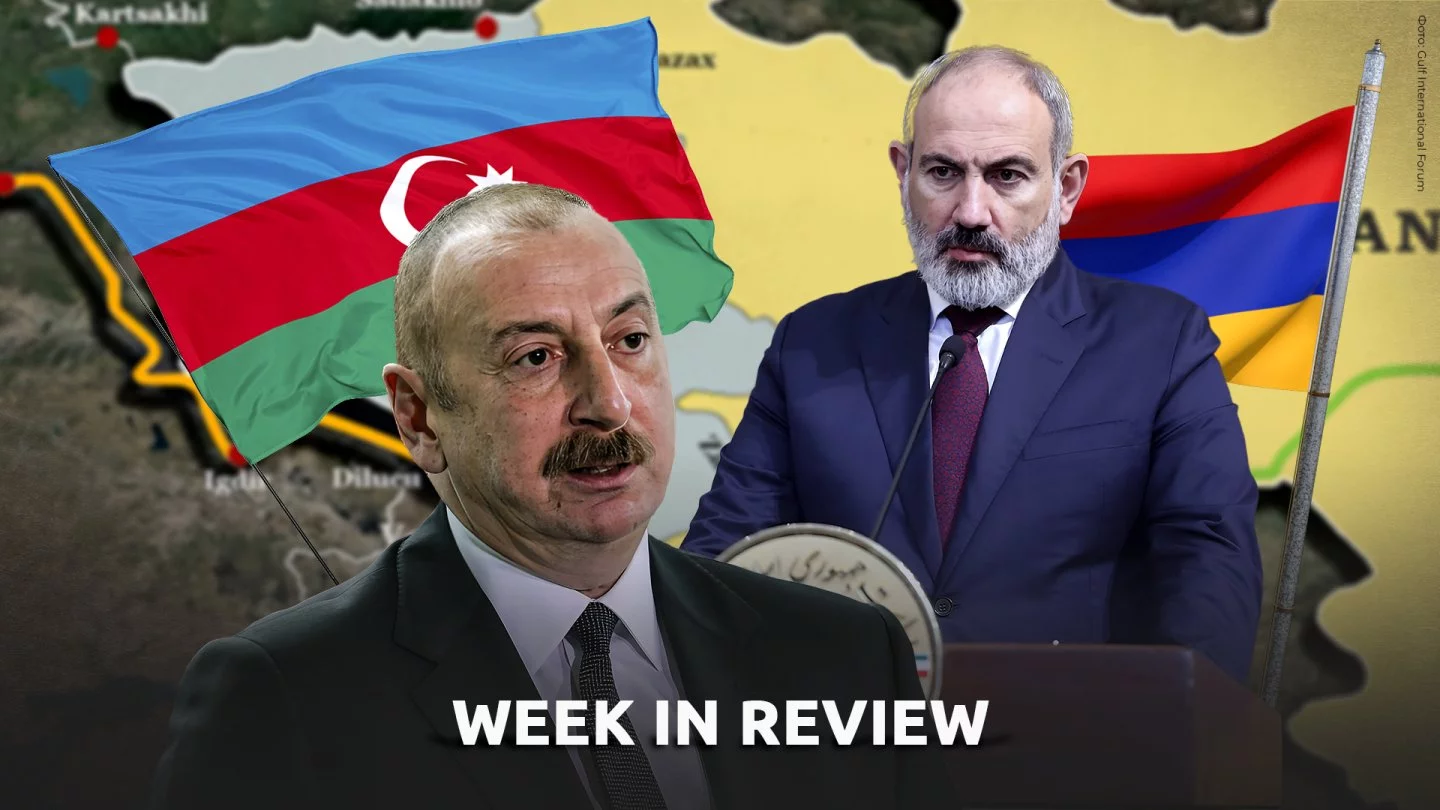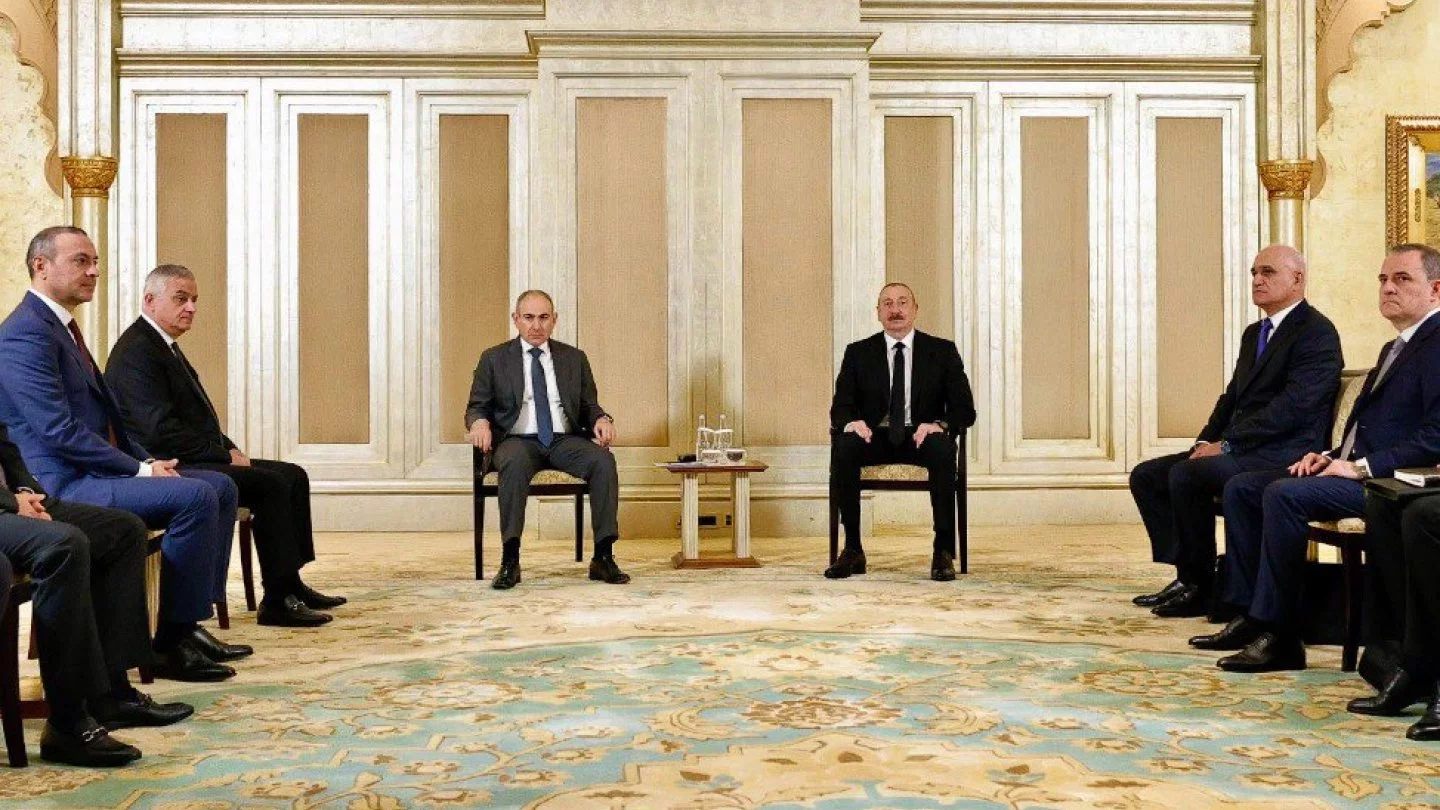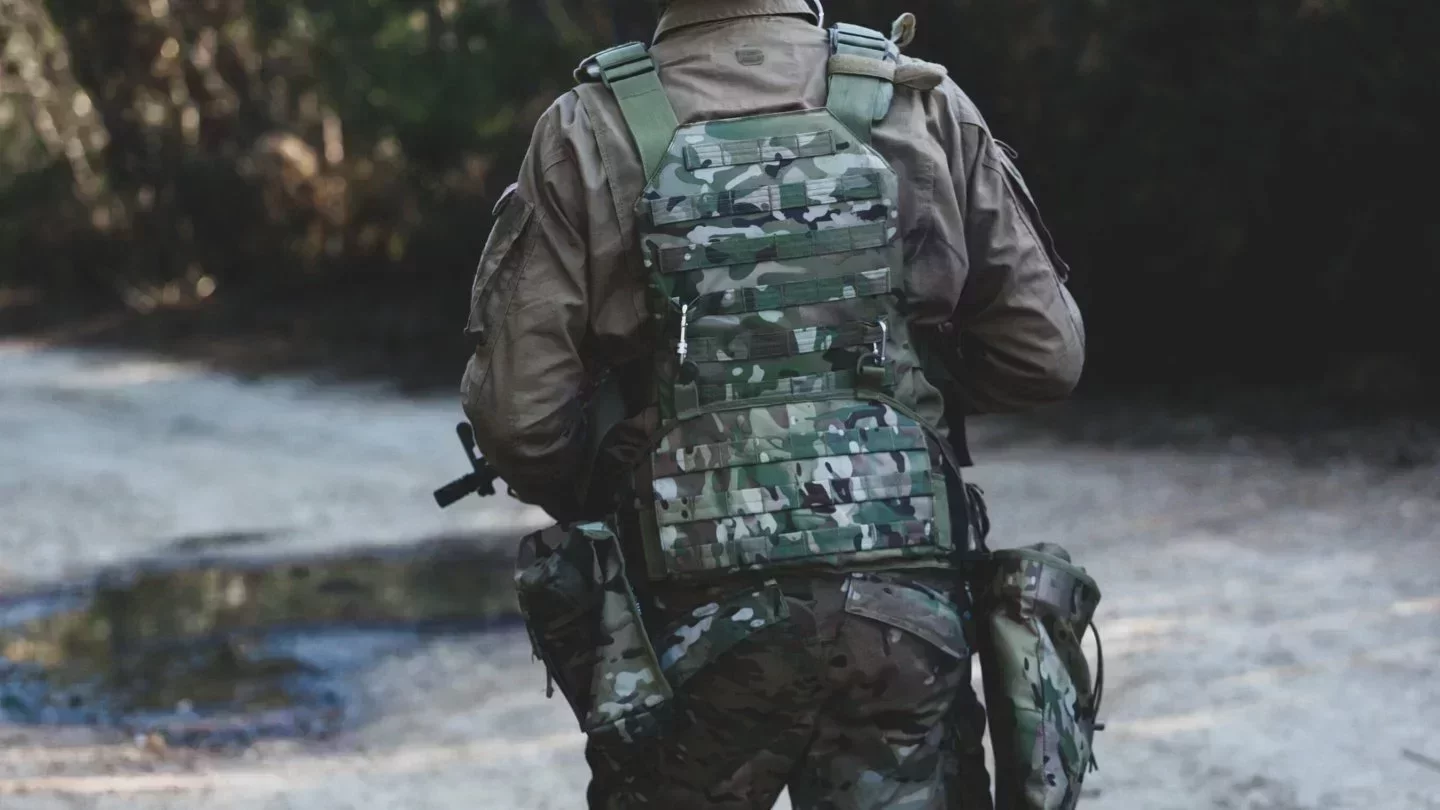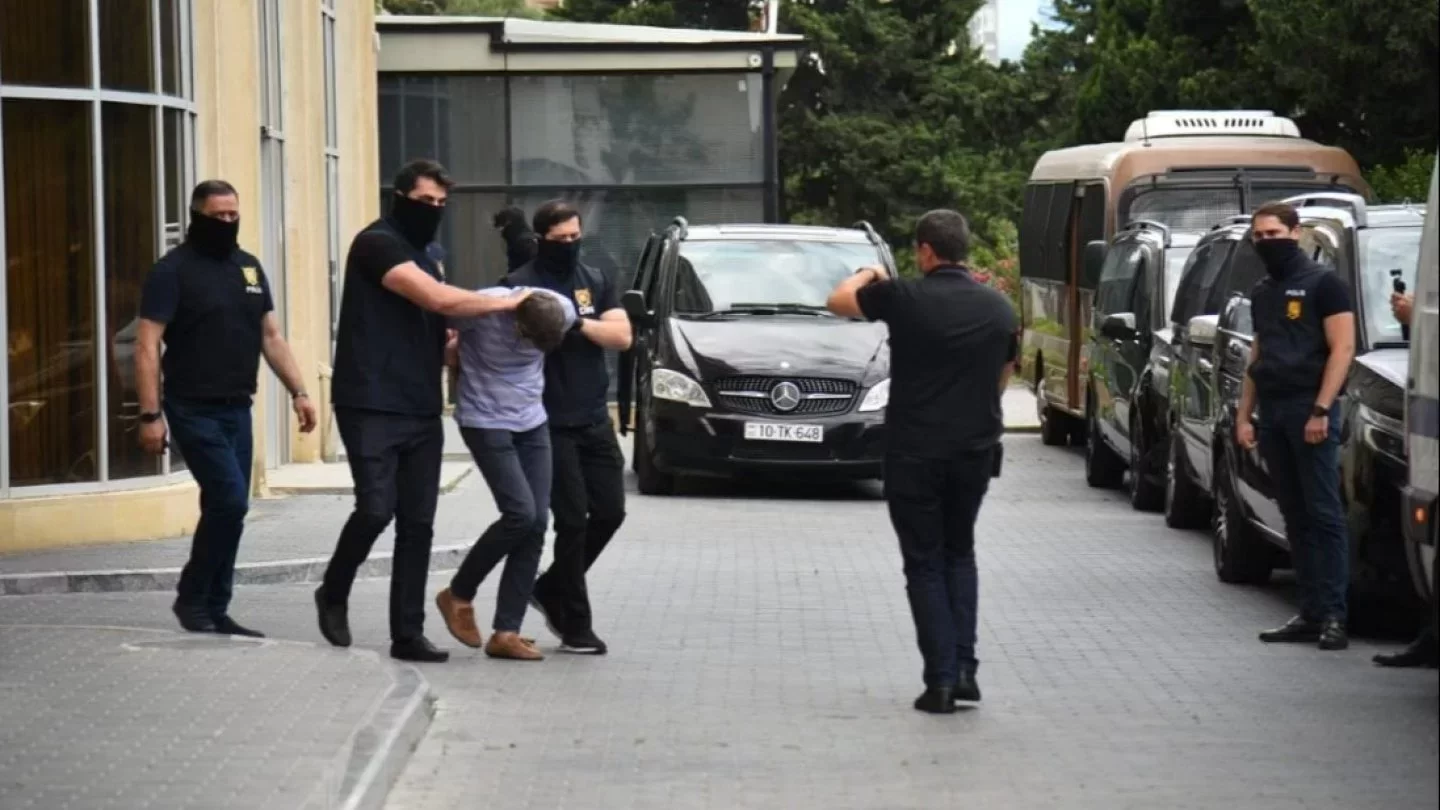Week In Review: Tensions, Diplomacy, and Accusations Roil the South Caucasus
 Photo: Orda
Photo: Orda
Orda has put together a brief synopsis of last week's news. This edition will focus on Armenia, Azerbaijan, and Russia.
A Cautious Approach?
Armenia and Azerbaijan cautiously advanced normalization efforts under geopolitical strain.
On July 10, Armenian Prime Minister Nikol Pashinyan and Azerbaijani President Ilham Aliyev met in Abu Dhabi to discuss the Armenia–Azerbaijan normalization agenda. Both sides concluded that bilateral negotiations remain the most effective format for addressing issues, including border delimitation and confidence-building measures.

They instructed relevant state commissions to continue practical efforts in these areas. The tone from Baku was consistent with Yerevan’s statement, highlighting progress and a mutual commitment to diplomacy, while reinforcing Azerbaijan’s preference for avoiding third-party mediation in favor of direct talks.
Despite ongoing talks, progress on normalization remains limited, with intermittent border fire incidents continuing to undermine confidence.
On the same day, Armenia’s Deputy Foreign Minister Mnatsakan Safaryan confirmed that discussions are ongoing about delegating certain functions related to reopening regional transport communications to a licensed international organization. He clarified that this would not involve foreign control, emphasizing that all processes must respect Armenia’s sovereignty and territorial integrity.
Another diplomatic communique on Armenia's part also signaled emphasis on Yerevan's preferred project - The Crossroads of Peace, which Armenian authorities have been pushing to advance as opposed to the alternative, "The Zangezur Corridor," backed by Baku and Moscow.
The U.S. has reportedly supported underlying regional connectivity initiatives, while reports emerged that Washington floated a "corridor deal" to do so, proposing to position U.S. business participation as a stabilizing force.
Claims of A Russian Buildup amid Ongoing Tensions
On July 6, Armenia’s Ministry of Foreign Affairs rejected allegations from Ukraine’s military intelligence that Russia was bolstering its military presence at the Gyumri base.
Ukraine's HUR asserted that Russian troops were being redeployed from Rostov, Volgograd, and Crimea, and that volunteers were being recruited from the North Caucasus to expand Russia’s influence in the South Caucasus. Armenia denied the report, reiterating that its territory cannot be used by third states for military actions against neighboring countries.

HUR had released a Russian military order to redeploy. A few days prior, Azerbaijan's President held a phone call with his Ukrainian counterpart, a move Moscow dubbed as an effort to provoke.
Later, Ukrainian Energy Minister Herman Halushchenko announced the signing of a protocol with his Azerbaijani counterpart Parviz Shahbazov following a meeting of the intergovernmental commission, as well as a “roadmap” for further steps in energy cooperation. The two sides discussed the possibility of supplying Azerbaijani gas to Ukraine and using Ukraine’s underground gas storage facilities (UGS) for international storage.
Ukraine had previously ended Russian gas exports to Europe via its territory.
These events coincided with heightened Russian-Azerbaijani tensions following a deadly June 27 police raid in Yekaterinburg in which two Azerbaijani citizens were killed.
Azerbaijan responded by canceling all cultural events involving Russian state and private institutions. The Milli Majlis also canceled its delegation’s planned trip to Moscow for the 23rd session of the interparliamentary commission. These would be the starting point in a reignited tit-for-tat between the two nations.
Arrests and Rumors
Following the above raid, on July 4, the Russian Interior Ministry confirmed that Azerbaijani businessman Vagif Suleymanov was detained in Moscow. Russia-based media described Suleymanov as an alleged criminal figure linked to Moscow’s Food City wholesale hub.
On the same day, Zaur Shipilov was arrested in Orenburg under charges of holding a leadership role in a criminal hierarchy. Meanwhile, in Yekaterinburg, Russian authorities briefly detained Shahin Shikhlinsky, head of the Azerbaijani diaspora in the Urals.
He was later released after being questioned as a witness in the Safarov brothers' case, linked to the homicides from the early 2000s. In Voronezh, Russian security also raided the home of Azerbaijani-origin businessman Yusif Khalilov.
Also on July 4, information emerged that Elshan Ibrahimov, head of the Azerbaijani diaspora organization in the Moscow region, had been stripped of his Russian citizenship on June 18. Subsequent reports indicate that he was later deported.
Russian sources cited national security concerns as the reason for the revocation.
Against that backdrop, Azerbaijan renewed its demands regarding accountability and compensation for the victims and transparency in investigations concerning the December 25, 2024, downing of an Azerbaijani flight.
On July 2, Azerbaijani media circulated a letter allegedly written by Russian Captain Dmitry Paladichuk admitting that he had ordered the missile strike that brought down the AZAL flight near Aqtau on December 25. The Insider reported on the plausible authenticity of the document and a corresponding voice recording.
Unverified reports also began circulating that Azerbaijan planned to shut down Russian-language schools over the next three years. Later that day, the Azerbaijani Ministry of Science and Education urged caution over such claims, calling for reliance on official sources.
RIA Novosti claimed the ministry said “the reports were fake.” Although there is reason to believe the original source is a satirical telegram channel, the initial report surfaced on a media outlet said to be aligned with the Azerbaijani government and political elite.
Azerbaijan also made its own arrests.
On July 1, Azerbaijan’s Ministry of Internal Affairs confirmed that seven individuals had been detained in connection with the Sputnik Azerbaijan case. Two were reportedly Russian FSB operatives. A criminal case was opened for fraud, illegal entrepreneurship, and money laundering.

Sputnik Azerbaijan had previously been restricted to a single accredited journalist and was effectively shuttered earlier this year.
Russia’s Rossiya Segodnya agency denounced the arrests and claimed its staff had been denied consular access.
During the same period, Azerbaijani authorities arrested eight Russian citizens on charges of cybercrime and drug smuggling. The detainees, reportedly linked to organized criminal groups, were placed under arrest for four months.
Reports suggested they had suffered physical abuse during apprehension.
Pushing Them Away?
All these developments have emerged amid ongoing tensions between the three nations.
Armenian authorities have also recently moved to remove what they see as potential political threats, such as Russian-Armenian billionaire Samvel Karapetyan, seen as pro-Russian, and specific church authorities.
In addition, Yerevan and Moscow have previously seen relations deteriorate over the Collective Security Treaty Organization's failure to respond during Azerbaijan's incursion into its sovereign territory in 2022.
Armenian Parliament Speaker Alen Simonyan had more recently announced that there is a possibility of halting the broadcast of Russian television channels throughout the republic, a signal of frustration with the narratives pushed. Back in January 2025, Russian Ambassador Sergei Kopyrkin over a state TV broadcast that allegedly challenged Armenia's sovereignty and territorial integrity.
Baku had more or less tempered its demands toward Moscow over the above airline crash; Russia had made several symbolic overtures, including constructing a monument to Heydar Aliyev in Moscow. Regardless, the above raids targeting "an ethnic criminal group" brought demands back to the fore.
Baku and Yerevan, seemingly in negotiation gridlock, appear to have slightly altered their narratives toward one another, though their initial interests seemingly remain intact. Azerbaijan has yet to withdraw its demands regarding Armenia's constitution, while Armenia reasserted and maintained its vision of logistical communications.
The Pashinyan–Aliyev meeting was likely prearranged, but its occurrence nonetheless marks incremental progress.
Although soured relations with Moscow are unlikely to be the driving factor in that regard, the Kremlin will interpret it as Russia being boxed out, perhaps forcing further overtures to remedy the situation. With reports of increased U.S. support for Kyiv, Moscow will be especially reluctant to cede ground in the South Caucasus, particularly to Türkiye and Europe.
That said, Armenia and Azerbaijan retain considerable agency in this dynamic, despite Yerevan's deeper economic ties with Russia and Baku's previous tensions with France, an outspoken supporter of Armenia.
Ankara recently hosted Pashinyan, making history, as he was the first Armenian leader to visit Türkiye since President Serzh Sargsyan's 2009 attempt to normalize relations that ultimately fell through.
Meanwhile, recent border fire incidents between Armenia and Azerbaijan underscore unpredictability.
Until real trust-building takes hold, any optimism should remain measured, as even a single misstep could unravel fragile diplomatic gains.
Latest news
- 2,500 Participants from 22 Countries: Almaty Opens the Running Season
- Snow and Frost: Weather Forecast for February 15
- Tokayev congratulates Serbia’s President Vucic on Statehood Day
- Mikhail Shaidorov Wins Kazakhstan’s First Winter Olympic Gold Since 1994
- Indian Crested Porcupines Spotted by Camera Trap in Ile-Alatau National Park
- Kazakhstan’s Air Pollution Isn’t Driven by Factories — Ministry of Ecology
- How the US Views Kazakhstan’s Constitutional Reform and Free Speech
- US Ambassador to Kazakhstan: Visa Restrictions for Kazakhstanis Are a Temporary Measure
- China-to-Russia Shipments Are Increasingly Bypassing Kazakhstan
- Shokan Ualikhanov Private School Reclassified as Large Business After Staff Tops 250
- Former Priest Yakov Vorontsov Reportedly Detained in Kazakhstan
- Kazakhstan Proposes Differentiated Toll Rates for Transit Foreign Drivers
- World Bank Ready to Provide Kazakhstan Up to $1 Billion a Year for Six Years
- Woman Forced to Move and Change Jobs Repeatedly as Ex-Husband Stalked Her
- Kazakhstanis Are Getting Married Less Often
- Why Online Voting Isn’t Coming for the 2026 Referendum
- Mephedrone lab network uncovered in Almaty’s private houses
- Kazakhstan’s Domestic Trade Slows in January
- A Man Spent Six Months in Jail for Nothing — Court Awards Millions from the State
- Over 100M Tenge in Budget Money Allegedly Spent on Gambling in West Kazakhstan

